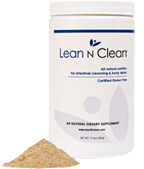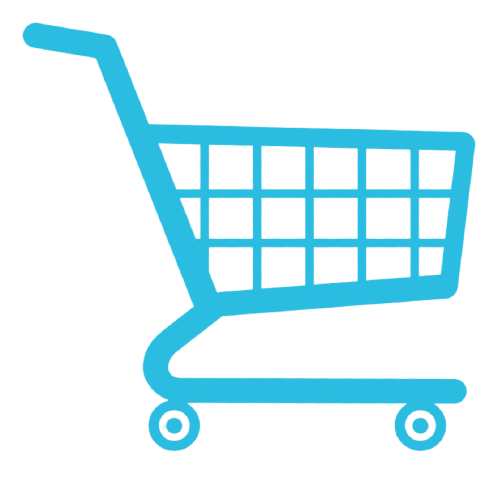Do You Suffer From Crohn's Disease?
IF you are suffering from Crohn’s Disease, Diverticulitis, IBS, hemorrhoids, constipation, Celiac Disease, acne, overall fatigue, you have found the natural/safe remedy-Lean N Clean®.
Taking Lean N Clean® as prescribed results in increased fiber intake, increased fluid consumption, and healthy bowel movements at normal intervals that don’t require straining. With Lean N Clean®, you can be in charge of regulating your bowel back to normal and functioning optimally. Taking Lean N Clean® can gradually help you get rid 0f the toxic buildup in your colon and therefore alkalize and detox your body.

What is Crohn's Disease?
Crohn’s disease is a form of inflammatory bowel disease (IBD). It usually affects the intestines, but may occur anywhere from the mouth to the end of the rectum (anus). Alternative Names: Inflammatory bowel disease – Crohn’s disease; Regional enteritis; Ileitis; Granulomatous ileocolitis; IBD- Crohn’s disease.
Causes
While the exact cause of Crohn’s disease is unknown, the condition is linked to a problem with the body’s immune system response. Normally, the immune system helps protect the body, but with Crohn’s disease the immune system can’t tell the difference between normal body tissue and foreign substances. The result is an overactive immune response that leads to chronic inflammation. This is called an autoimmune disorder.
People with Crohn’s disease have ongoing (chronic) inflammation of the gastrointestinal tract. Crohn’s disease may occur in any area of the digestive tract. There can be healthy patches of tissue between diseased areas. The ongoing inflammation causes the intestinal wall to become thick.
There are five different types of Crohn’s disease:
- Ileocolitis is the most common form. It affects the lowest part of the small intestine (ileum) and the large intestine (colon).
- Ileitis affects the ileum.
- Gastroduodenal Crohn’s disease causes inflammation in the stomach and first part of the small intestine, called the duodenum.
- Jejunoileitis causes spotty patches of inflammation in the top half of the small intestine (jejunum).
- Crohn’s (granulomatous) colitis only affects the large intestine.
A person’s genes and environmental factors seem to play a role in the development of Crohn’s disease. The body may be overreacting to normal bacteria in the intestines. The disease may occur at any age, but it usually occurs in people between ages 15 – 35.
Risk factors include:
- Family history of Crohn’s disease
- Jewish ancestry
- Smoking
Symptoms
Symptoms depend on what part of the gastrointestinal tract is affected. Symptoms range from mild to severe, and can come and go with periods of flare-ups.
The main symptoms of Crohn’s disease are:
- Crampy abdominal (belly area) pain
- Fever
- Fatigue
- Loss of appetite
- Pain with passing stool (tenesmus)
- Persistent, watery diarrhea
- Unintentional weight loss
Other symptoms may include:
- Constipation
- Eye inflammation
- Fistulas (usually around the rectal area, may cause draining of pus, mucus, or stools)
- Joint pain
- Liver inflammation
- Mouth ulcers
- Rectal bleeding and bloody stools
- Skin rash
- Swollen gums
Tests & Diagnosis
A physical examination may reveal an abdominal mass or tenderness, skin rash, swollen joints, or mouth ulcers. Tests to diagnose Crohn’s disease include:
- Barium enema
- Colonoscopy
- Computed tomography (CT scan) of the abdomen
- Endoscopy, including capsule endoscopy
- Magnetic resonance imaging (MRI) of the abdomen
- Sigmoidoscopy
- Enteroscopy
- Upper GI series
Treatments
Diet & Nutrition
No specific diet has been shown to improve or worsen the bowel inflammation in Crohn’s disease. However, eating a healthy amount of calories, vitamins, and protein is important to avoid malnutrition and weight loss. Specific food problems may vary from person to person.
Certain types of foods may worsen diarrhea and gas symptoms, especially during times of active disease. Suggestions for diet during periods when symptoms are present include:
- Eat small amounts of food throughout the day.
- Drink lots of water (frequent consumption of small amounts throughout the day).
- Avoid high-fiber foods (bran, beans, nuts, seeds, and popcorn).
- Avoid fatty greasy or fried foods and sauces (butter, margarine, and heavy cream).
- If your body does not digest dairy foods well, limit dairy products.
- Avoid or limit alcohol and caffeine consumption.
People who have a blockage of the intestines may need to avoid raw fruits and vegetables. Those who have difficulty digesting milk sugar (lactose) may need to avoid milk products.
Ask your doctor about extra vitamins and minerals you may need: Iron supplements (if you are anemic) Calcium and vitamin D supplements to help keep your bones strong Vitamin B-12 to prevent anemia
Medications
- Aminosalicylates (5-ASAs) are medicines that help control mild to moderate inflammation. Some forms of the drug are taken by mouth; others must be given rectally.
- Corticosteroids (prednisone and methylprednisolone) are used to treat moderate to severe Crohn’s disease. They may be taken by mouth or inserted into the rectum.
- Immunomodulators such as azathioprine or 6-mercaptopurine quiet the immune system’s reaction. They help reduce the need for corticosteroids and can help heal some fistulas.
- Antibiotics may be prescribed for abscesses or fistulas.
- Biologic therapy is used to treat patients with severe Crohn’s disease that does not respond to any other types of medication.
- Medicines in this group include Infliximab (Remicade) and adalimumab (Humira), certolizumab (Cimzia), and natalizumab (Tysabri). They belong to a class of drugs called monoclonal antibodies, which help block an immune system chemical that promotes inflammation.
Surgery
If medicines do not work, a type of surgery called bowel resection may be needed to remove a damaged or diseased part of the intestine or to drain an abscess. A procedure called anastomosis is done to connect the remaining two ends of the bowel.
Most patients with Crohn’s disease will need bowel surgery at some time. However, unlike ulcerative colitis, surgically removing the diseased portion of the intestine does not cure the condition.
Some patients may need surgery to remove the entire large intestine (colon), with or without the rectum.
Prognosis
There is no cure for Crohn’s disease. The condition is marked by periods of improvement followed by flare-ups of symptoms. It is very important to stay on medications long-term to try to keep the disease symptoms from returning. You have a higher risk for small bowel and colon cancer if you have Crohn’s disease.
Complications
- Abscess
- Bowel obstructions
- Complications of corticosteroid therapy, such as thinning of the bones
- Erythema nodosum
- Fistulas in the following areas:
- Bladder
- Skin
- Vagina
- Impaired growth and sexual development in children Inflammation of the joints
- Lesions in the eye
- Nutritional deficiency (particularly vitamin B12 deficiency)
- Pyoderma gangrenosum
Products
Lean N Clean®
Digestive Issues
- Diverticulitis
- Crohn’s Disease
- Celiac Disease
- Irritable Bowel Syndrome (IBS)
- Constipation
- Hemorrhoids
- Acne Cure and Prevention
- Bad Breath Cure and Prevention
- How to Regulate Your Bowel
Cleansing Benefits
Digestive Health
- Visit www.acidgone.com to learn about our Acid Reflux/GERD/heartburn- product- Acidgone®
- Read About How You Can Avoid Being a Willing Medical Victim on willingmedicalvictims.org
- Are you an independent thinker? Share your important thoughts to benefit humanity on debateandshare.com

